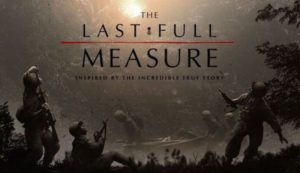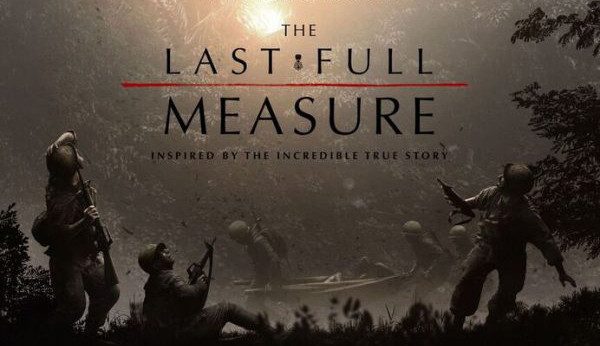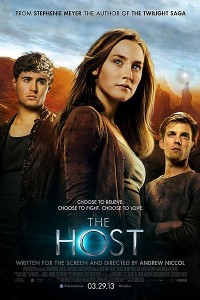The Last Full Measure
Posted on January 23, 2020 at 5:41 pm
B-| Lowest Recommended Age: | Mature High Schooler |
| MPAA Rating: | Rated R for war violence and language |
| Profanity: | Strong language |
| Alcohol/ Drugs: | Smoking, medication |
| Violence/ Scariness: | Graphic and disturbing images of wartime violence, characters injured and killed, veterans with PTSD, medical issues |
| Diversity Issues: | None |
| Date Released to Theaters: | January 24, 2020 |

So a documentary about what really happened would have been better. Instead we have a diligent, well-intentioned, if overheated story that is as much about the (fictional) Defense Department staffer who was assigned to investigate the application for the Medal of Honor, Scott Huffman (Sebastian Stan), and the lessons he learned from contact with the honor and courage of Pitsenbarger, his parents (Plummer and Ladd), and the humble but insistent men who would not quit.
The movie goes back and forth between 1966 Vietnam and 1995 Washington DC. In Vietnam, Pitsenbarger was an Air Force pararescueman, not in a combat company himself but part of a team that evacuated wounded soldiers via helicopter. In one of of the bloodiest days of the war (meaning highest US casualty count), when the Americans were being slaughtered, he rescued wounded men at great risk to his own life and then picked up a gun and fought alongside them, until he was shot and killed. These scenes are extremely violent and graphic and often hard to follow, especially since there is no effort to make the younger versions of the characters played by Fonda, Harris, Jackson, and Savage look or sound like their counterparts.
In 1995 Washington, DC, Huffman (a fictional character) is an ambitious Defense Department civilian bureaucrat with a young son and a pregnant wife (neither of whom serve any function in the story except to be adorable and supportive, with one brief pep talk. His career is in jeopardy when the political appointee who serves as Secretary of the Air Force (Linus Roache) announces that he is resigning (and yet somehow still in the job what looks like a year later at the award ceremony but okay). And when he is assigned to develop a record for the medal application, including interviewing eye witnesses and tracking down mysteriously missing paperwork.
None of this is true (and by the way, the wives of the veterans whose lives were saved also played a significant part in getting the medal), but it makes for good drama, giving each of the venerable co-stars a moment suitable for a lifetime achievement clip real. They fall at different points on the range of PTSD, but all of them end up confessing and achieving some kind of catharsis. It is poignant to see the clearly ailing Peter Fonda in his last role as the most fragile of the group. And it is a little bit surreal to see John Savage of “The Deer Hunter” back in Vietnam 42 years later. Not the “Kurtz-ian burnout smoking ganja under a bohdi tree” that Huffman imagined but someone who found peace by bringing peace to others. Ladd’s monologue about sending her teenage son to war is also a highlight, and a welcome reminder that when we say no to sending our children into battle it just means we are sending someone else’s children in their place.
It is artificial and awkward. but thankfully it does not try to make the purpose of Pitsenbarger’s story into a life lesson for a fictional civilian. A moving award ceremony at the end reminds that the purpose of any hero’s story is to give a life lesson to us.
Parensts should know that this movie includes scenes of the Vietnam war with very graphic wartime violence and disturbing images, characters injured and killed, veterans with PTSD, strong language, and smoking.
Family discussion: How did Scott change as he spoke to the veterans? What did he learn about listening from Kepper? What kind of medal would you like to earn?
If you like this, try: “Hacksaw Ridge” and “We Were Soldiers”



